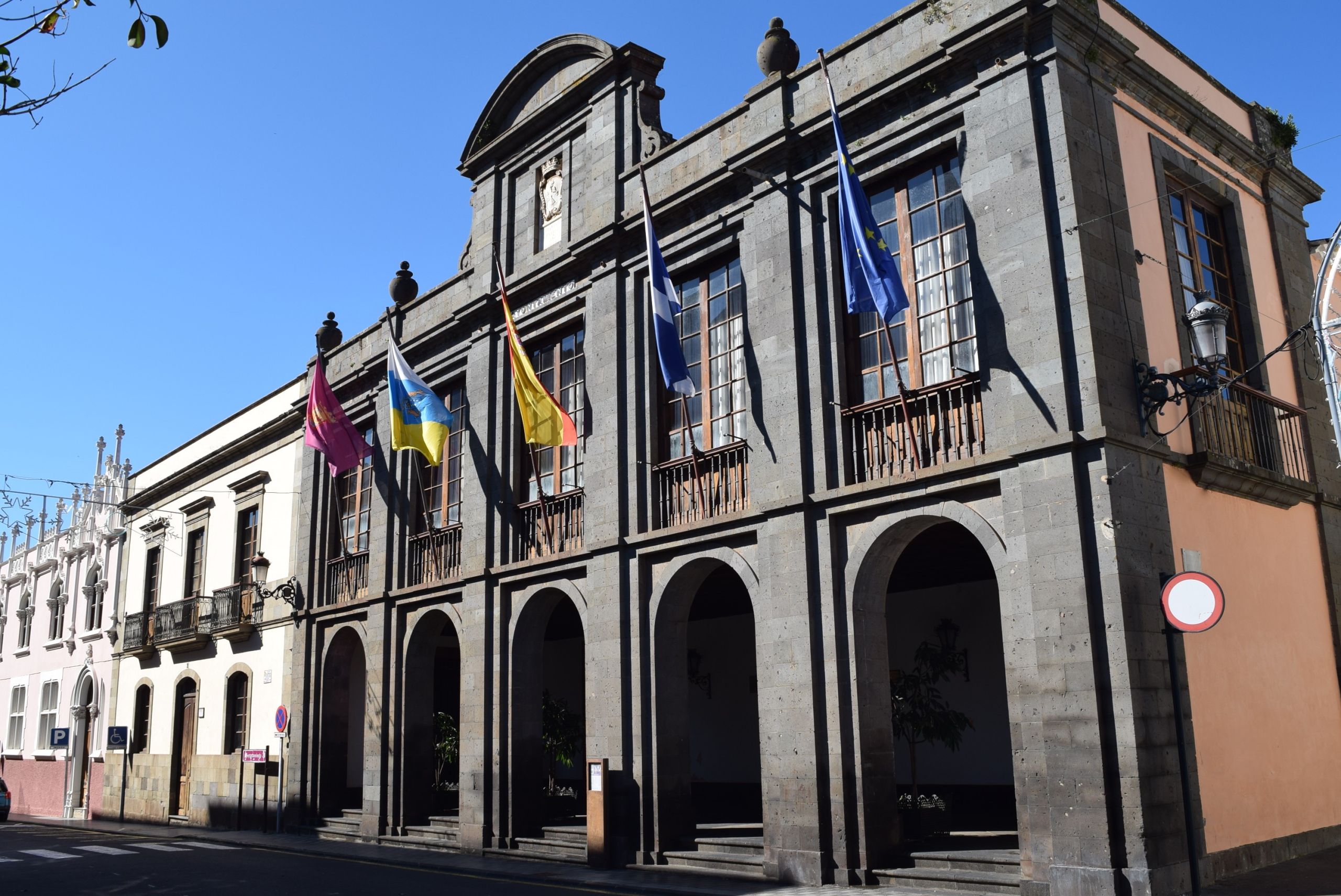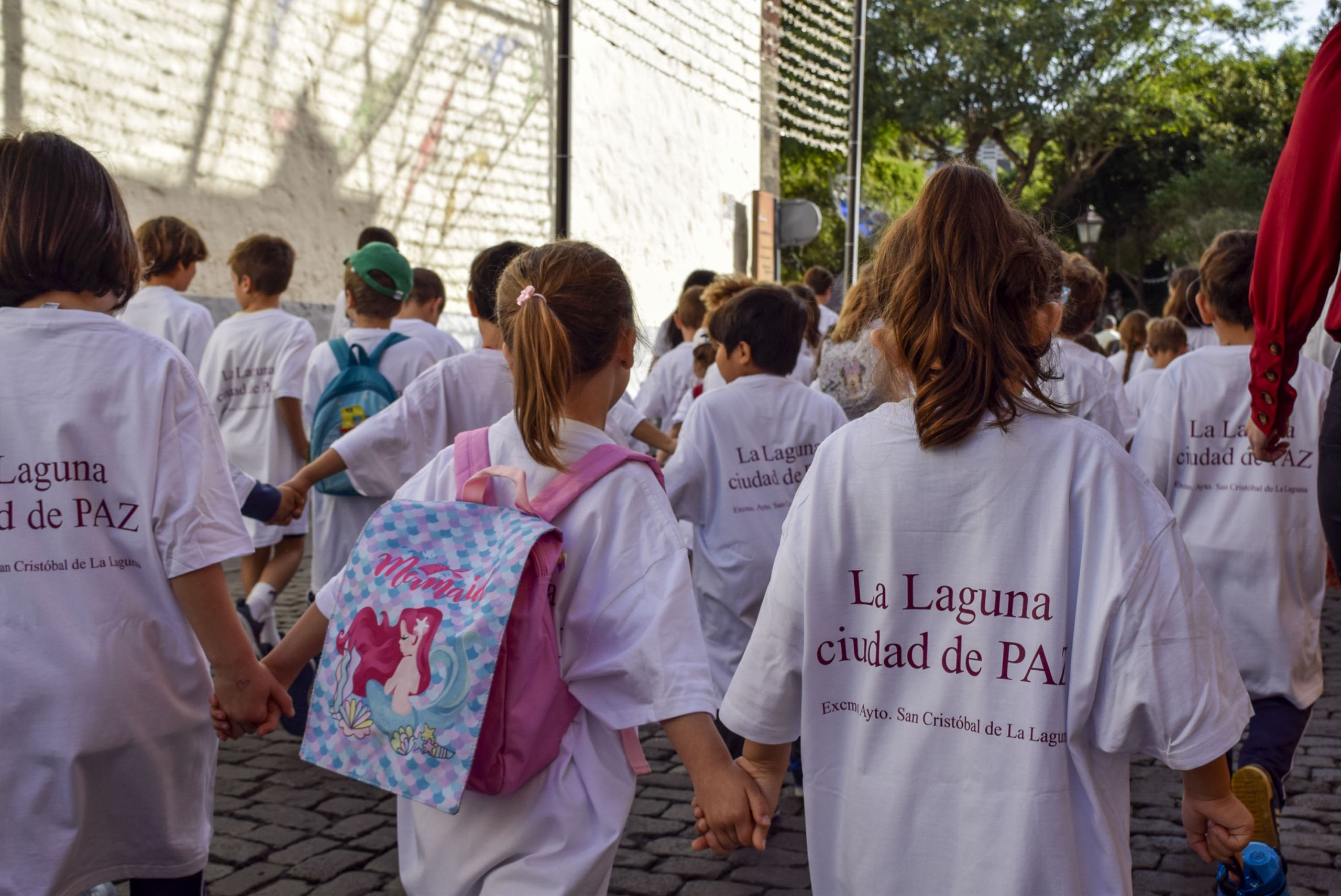The municipal plenary session debates granting honours to these universal figures for their promotion of the ‘Declaration of the Rights of Future Generations’, signed in 1994 in the Canary Islands World Heritage city and a precursor to the SDGs.
 This Thursday, the La Laguna City Council will debate a motion of great symbolic and historical significance for the municipality: the awarding of honours and distinctions to Federico Mayor Zaragoza and Jacques Cousteau, two universal figures who played a fundamental role in the drafting of the 1994 Declaration on the Rights of Future Generations, known internationally as the “La Laguna Declaration” and considered a precursor to the current Sustainable Development Goals (SDGs), as well as a benchmark in the consolidation of the principle of intergenerational justice.
This Thursday, the La Laguna City Council will debate a motion of great symbolic and historical significance for the municipality: the awarding of honours and distinctions to Federico Mayor Zaragoza and Jacques Cousteau, two universal figures who played a fundamental role in the drafting of the 1994 Declaration on the Rights of Future Generations, known internationally as the “La Laguna Declaration” and considered a precursor to the current Sustainable Development Goals (SDGs), as well as a benchmark in the consolidation of the principle of intergenerational justice.
This recognition is of particular importance for La Laguna, a city that was founded without walls and has historically been identified as a place of peace and dialogue between continents. The initiative not only aims to honour two internationally renowned figures, but also seeks to restore the global relevance of the Declaration of La Laguna, approved in February 1994 at the University of La Laguna during an international meeting organised by UNESCO, the Cousteau Foundation and the academic institution itself.
That forum brought together more than 30 experts from 20 countries and resulted in a pioneering document that established 14 fundamental rights for future generations, linked to peace, environmental protection and the preservation of cultural and natural heritage. Oceanographer Jacques Cousteau described the agreement as “the fulfilment of a dream of 24 years of struggle”, while Federico Mayor Zaragoza, then Director-General of UNESCO, was the driving force behind the meeting and coordinator of the work that culminated in the approval of the text.
The mayor of La Laguna, Luis Yeray Gutiérrez, hopes that the proposal will receive the support of all the councillors of the local council, as it represents “recognition of extraordinary value for our municipality and will enable us to once again project La Laguna onto the international stage as a city of peace, culture and commitment to major global challenges”.
“Honouring the memory of Federico Mayor Zaragoza and Jacques Cousteau, in the year in which we celebrate the 25th anniversary of our declaration as a World Heritage City, also means celebrating a historic moment that placed La Laguna at the centre of the global debate on the future of humanity, something that is rarely appreciated in our autonomous community,” adds Gutiérrez.
The Councillor for Cultural Heritage, Adolfo Cordobés, will defend this motion on behalf of the political parties that make up the municipal government group. The councillor emphasises that “the 1994 Declaration of La Laguna forever linked the name of our municipality to universal principles of peace, sustainability and intergenerational solidarity. With this motion, we wish to pay a fitting and necessary tribute to two exceptional figures, whose vision and commitment marked a turning point in the defence of the rights of future generations, a recognition that also provides an opportunity to reaffirm La Laguna’s role as a city committed to these values.”
The motion recalls that, despite its importance, the Declaration of La Laguna remains little known in the Canary Islands, a situation that the municipality of Tenerife has been trying to reverse since last year, both with the commemorative events that took place on the 30th anniversary of this initiative, which highlighted its relevance in the face of today’s climatic and social challenges, and through the programme it is developing to mark a quarter of a century as the only World Heritage City in the Canary Islands.
The motion submitted to the plenary session proposes that the City Council’s Honours and Distinctions Committee consider granting official recognition to Federico Mayor Zaragoza and Jacques Cousteau. In doing so, La Laguna reaffirms its commitment to peace and dialogue, and permanently links its name to a document of universal significance that anticipated the great debates of the 21st century.



